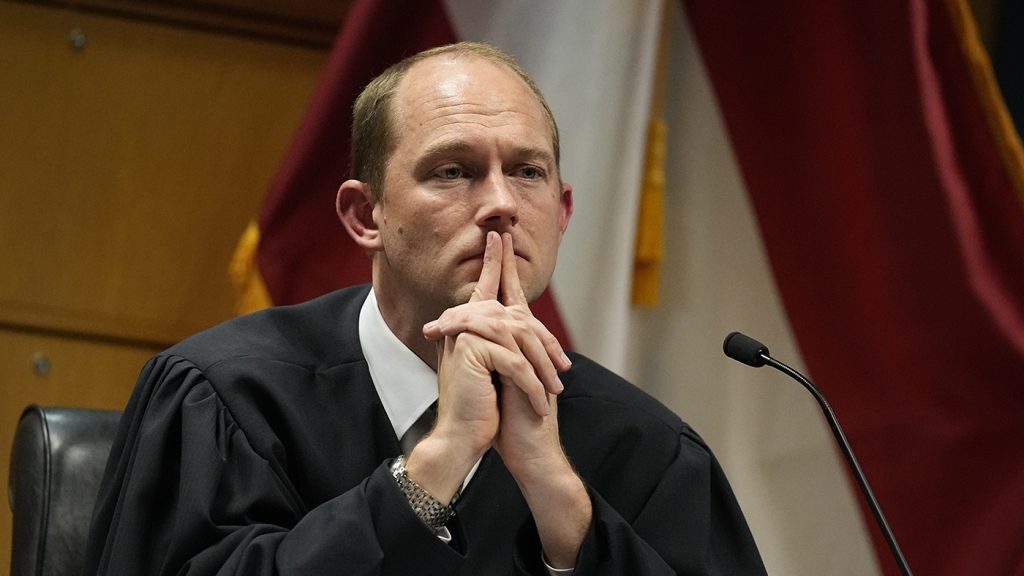A Georgia judge has permitted former President Trump to quickly challenge the recent decision that refused to remove Fulton County District Attorney Fani Willis (D) due to her romantic relationship with a top prosecutor handling the election interference case there.
In a short order issued on Wednesday, Judge Scott McAfee granted the certificate of immediate review requested by Trump and eight of his co-defendants in the extensive racketeering case.
They are now expected to request the Georgia Court of Appeals to consider the disqualification dispute before the case goes to trial.
However, McAfee made it clear that he will not delay proceedings in his court as the efforts continue.
“The Court intends to continue addressing the many other unrelated pending pretrial motions, regardless of whether the petition is granted within 45 days of filing, and even if any subsequent appeal is expedited by the appellate court,” McAfee wrote in his ruling.
Trump and his allies are accused of racketeering and other criminal charges by entering a months-long criminal conspiracy to overturn Joe Biden’s 2020 victory in Georgia. Trump pleaded not guilty to the charges as well as those levied in his three other criminal cases.
The former president and many of his co-defendants are trying to remove Willis and her entire office from the case due to the district attorney’s past romantic relationship with Nathan Wade, a special prosecutor who led the Georgia criminal investigation into the former president.
The romance revelation caused a lengthy delay in the case, involving multiple hearings with sensational testimony. Last week, the judge ended the dispute by ruling that Willis could remain on the case if Wade left. Hours later, Wade resigned.
Trump and his co-defendants are now trying to take the matter to a higher court in the state in the hopes of reversing the decision to delay the case or even dismiss the charges altogether. They argue that the romance created an actual conflict of interest, a claim that the district attorney’s office has rejected.
“The March 15 Order is of exceptionally great importance to this case, substantially impacting Defendants’ rights to due process,” lawyers for many of the defendants wrote in their joint motion seeking permission to appeal.
“Additionally, given the lack of guidance from the appellate courts on key issues, and the fact that any errors in the March 15 Order could be structural errors that would necessitate retrial(s), the grant of a certificate of immediate review is both prudent and warranted.”









